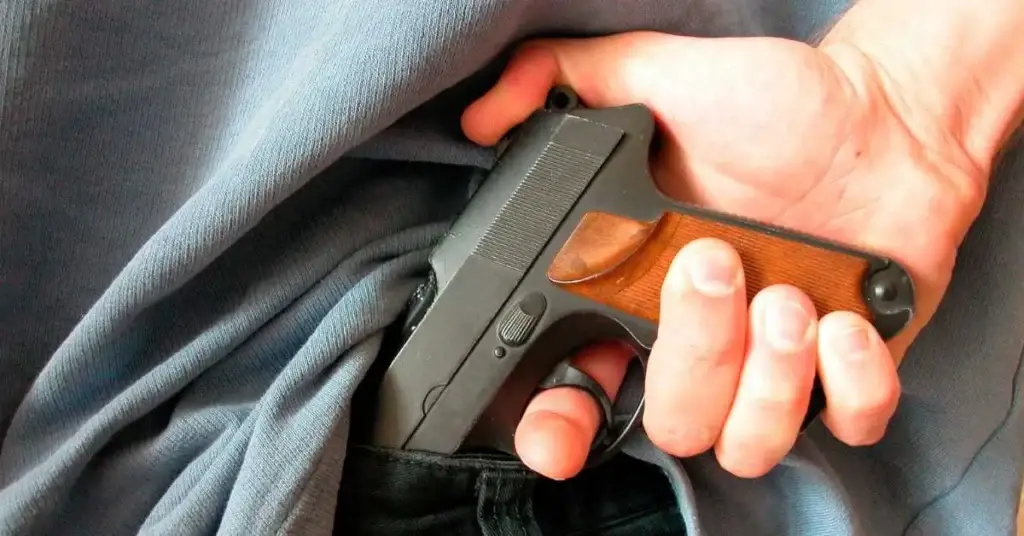🔫 Defending Weapons Crime Charges in Florida
While both the U.S. and Florida Constitutions protect your right to bear arms, that right isn’t unlimited. You can still face criminal charges for unlawful weapon possession or use—and the penalties can be severe.
If you’ve been charged with a gun or weapons offense in Florida, it’s crucial to understand the defenses available to you and contact a weapons crime lawyer as soon as possible.
📞 Call Michael White, P.A. at (954) 270-0769 for a free consultation today.
⚖️ Common Weapons Charges in Florida
Florida law criminalizes many weapon-related activities, including:
- Unlawful possession of a firearm or prohibited weapon
- Possession by a convicted felon
- Carrying a concealed weapon without a valid permit
- Assault or battery with a deadly weapon
- Illegal discharge or sale of a firearm
🧠 Legal Defenses Against Weapons Charges
Here are some of the most effective defenses your attorney may explore:
🔍 1. Unlawful Search and Seizure
Under the Fourth Amendment, police cannot search your person, car, or home without probable cause or a valid warrant. If your weapon was found during an illegal search, the evidence can be suppressed in court.
🧾 2. Lack of Knowledge or Possession
You must knowingly possess the weapon. If a firearm was found in a shared or public space, your lawyer may argue that you didn’t know it was there or had no control over it.
🛡️ 3. Self-Defense or Stand Your Ground
If you used a weapon in response to an immediate threat, Florida’s Stand Your Ground law may apply. This can provide immunity from prosecution if force was necessary to protect yourself or others.
⚠️ 4. Necessity or Duress
If you used the weapon to prevent a greater harm, such as protecting someone from attack, your lawyer may raise duress or necessity as a defense.
🙅 5. Lack of Criminal Intent
Many weapons charges require specific intent. If the use or possession of the weapon was accidental, or you did not intend to violate the law, that can serve as a defense.
🎯 6. Entrapment
In sting operations or undercover investigations, law enforcement may coerce or persuade someone into committing a crime they wouldn’t otherwise have committed. If that happened, you may raise entrapment as a defense.
📄 7. Clerical or Licensing Errors
If you’re accused of unlawful possession or concealed carry, but you actually had a valid gun license, presenting the correct documentation may result in dismissal of the charges.
🗽 8. Constitutional Challenges
Sometimes the law itself may be unconstitutional—overly broad, vague, or in conflict with your rights. Your defense attorney can file motions to dismiss based on these legal flaws
🧪 9. Procedural Mistakes
Police sometimes fail to follow required legal procedures:
- Not reading your Miranda rights
- Mishandling evidence
- Filing incomplete reports
These procedural errors can lead to dismissal or suppression of key evidence.
👨⚖️ Why You Need a Florida Weapons Charge Defense Lawyer
A conviction for a weapons offense in Florida can mean years in prison, mandatory minimum sentences, and a permanent criminal record—especially if tied to a violent offense.
Attorney Michael White is a former prosecutor with over 20 years of experience handling gun and weapons cases across Fort Lauderdale, Broward County, and South Florida.
He’ll fight to:
- Challenge illegally obtained evidence
- Raise valid defenses based on the facts of your case
- Protect your rights under Florida and federal law
📞 Call (954) 270-0769 or schedule a free consultation online
❓ Frequently Asked Questions
1. What are common weapons charges in Florida?
Common weapons charges include unlawful possession of a firearm, carrying a concealed weapon without a permit, possession by a convicted felon, assault with a deadly weapon, and illegal sale or discharge of a firearm.
2. Can I be charged if the gun wasn’t mine?
Yes. But to convict, the prosecution must prove you knowingly possessed the weapon. If the firearm was found in a shared space, your lawyer may argue you had no knowledge or control over it.
3. What is Florida’s “Stand Your Ground” law?
Florida’s Stand Your Ground law allows individuals to use force—including deadly force—without retreating, if they reasonably believe it’s necessary to prevent death or serious harm. This can be a defense in weapons cases involving self-defense.
4. Are there mandatory minimum sentences for gun crimes in Florida?
Yes. Under the 10-20-Life law, you face mandatory prison time if a firearm is used during a crime—10 years for possession, 20 years for discharging it, and 25 years to life if someone is injured or killed.
5. Can I fight a weapons charge if my rights were violated?
Absolutely. If law enforcement conducted an illegal search, failed to read Miranda rights, or mishandled evidence, your attorney can file a motion to suppress evidence or dismiss the case.




